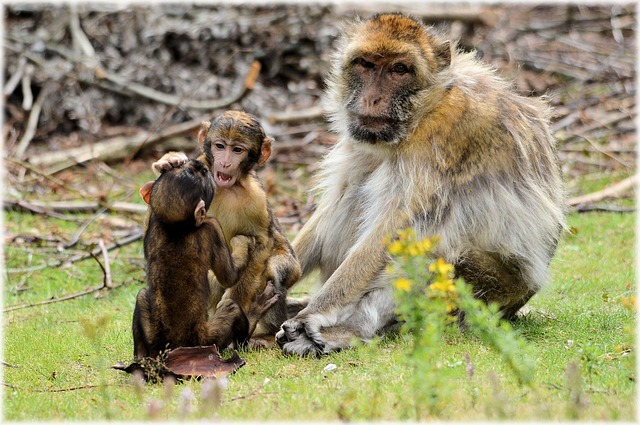A study published Thursday says that monkeys become less sociable as they get older – grumpier, pickier and less inclined to interact – much like humans.
Alexandra Freund, a developmental psychologist at the University of Zurich, worked on the study that showed how human behavior changes as people get older could have some biological origins. “This clearly tells us that we, as humans, are not unique in the way we age socially but that there might be an evolutionary ‘deep’ root in this pattern,” Freund said in an article by the New York Times.
Along with colleague Julia Fischer from the German Primate Center in Goettingen, Germany and a team of researchers, Freund wanted to find out how age factored into the behavior of over 100 Barbary macaque monkey in a 50-acre enclosed park in France. The researchers documented how the monkeys, aged 4 to 29, reacted to object like toys and tubes with food, along with social activities like grooming or fighting, and social information such as photos or calls of those the monkeys saw as friends or strangers.
The researchers discovered that the monkeys began to lose interest in toys when they started reproducing. Around 20 years old, which is their retirement age, the monkeys had fewer social contacts and did not approach others as often as before.
The surprising result was that the social withdrawal was not limited to old monkeys; younger monkeys still groomed their elders and interacted with them. Older monkeys, while less active, still responded to photos of other monkeys and reacted during fights by hissing.
“They are still very much tuned into what’s going on,” Fischer said. “But they don’t want to participate themselves.”
Freund said the same behavior pattern is apparent in humans. The primary theory behind this is that people become choosier with age because they want to maximize the time left, with death in sigh. However, monkeys have very good memories and there is no evidence that they know when they’re going to die, but the behaviors are similar. So the theory might just be a way of rationalizing natural behavior with biological basis, Fischer said.
It could be possible that both humans and monkeys lose energy and stamina as they get older. Or, as the researchers are trying to prove, aging monkeys are less socially engaged because they don’t take as many risks, which is what happens in humans, based on previous studies.
Whatever the case, the message for humans seems clear. Dr. Freund said, “Our behaviors that seem very much the result of our deliberation and choice might be more similar to our primate ancestors than we might think.”
The study was published in Current Biology.
























